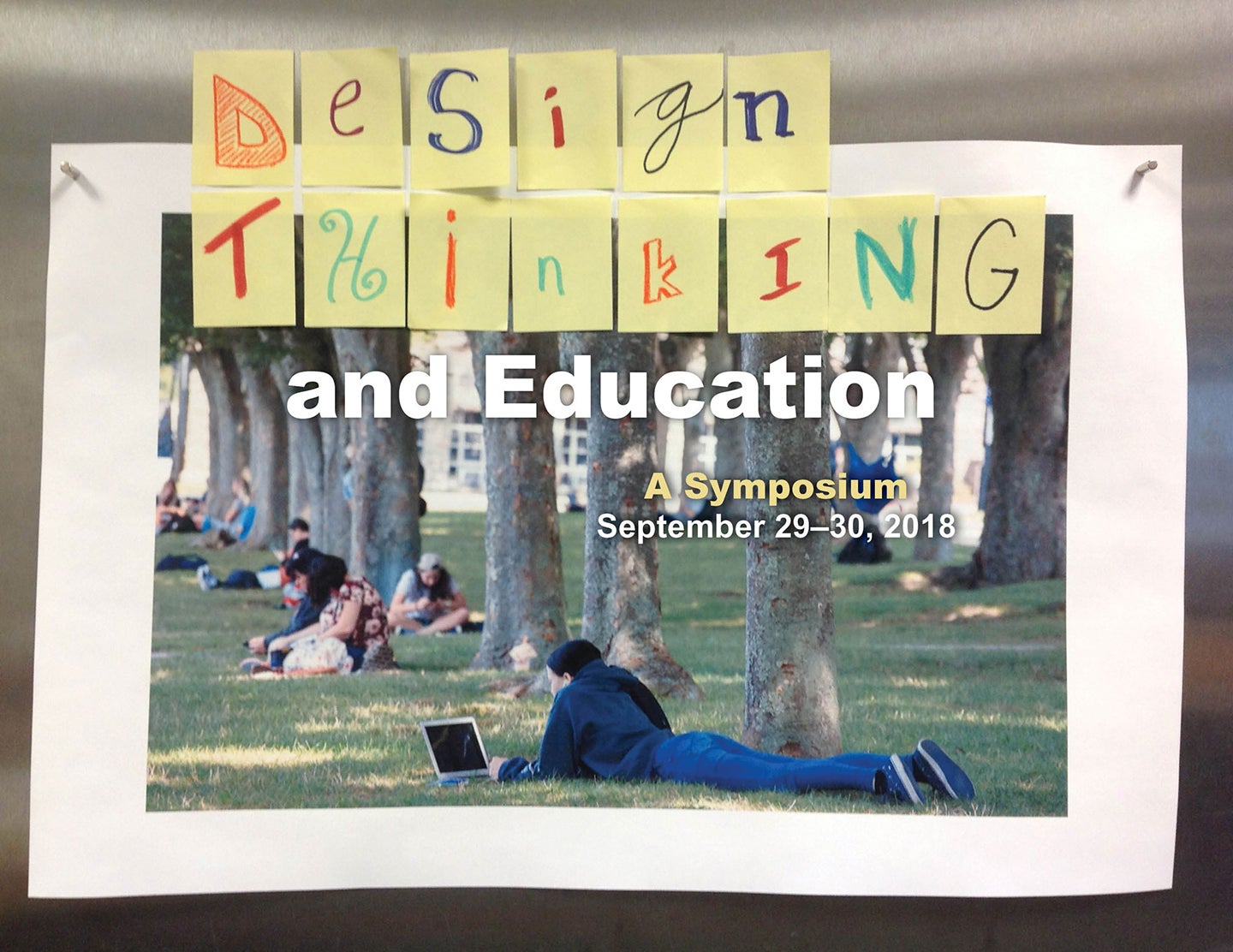KINGSTON, R.I. – Sept. 13, 2018 – From space-travel to the military to medicine to industry, design thinking is being harnessed to find innovative solutions to many complex problems.
The University of Rhode Island is extending the conversation Sept. 29-30 with a symposium examining how institutions of higher education can use the design process and creative thinking to develop internally, ally with external partners and prepare the future creative workforce.
Design Thinking and Education is convening experts in the arts, industry, business, government, the military and education. But the public – scholars, students, administrators, professionals and anyone interested in learning more of about designing thinking – is also encouraged to attend. Registration for the two-day symposium is $150 until Sept. 20 (students attend for free).
“We want to get the stakeholders in a room and discuss what we’re doing, why we’re doing it, what we’re curious about, what we’re worried about and how we can work together,” says Karl Aspelund, symposium chair and associate professor of textiles, fashion merchandising and design in the College of Business.
“This is an exploratory conversation, an exploratory gathering, that will hopefully produce connections and lead to the next stage of the conversation.”
Design thinking, explains Aspelund, former designer, anthropologist, and author of “The Design Process,” is a user-centered approach to problem solving that borrows from the work process of artists and designers, following a series of non-linear steps that can include inspiration, identification, conceptualization, exploration, definition, communication and production.
“It’s been a generation now that has been looking at this,” said Aspelund, whose work has included participating in design inquiries on military matters. “It’s been starting to filter actively into educational institutions because you have a whole generation of theory, pedagogy and practice. Now people feel we’re capable of taking design thinking into a seventh-grade classroom, into a university and into the military.”
“I believe that innovation, entrepreneurship, design thinking and solution strategy represent critical next steps for student learning and opportunity, university engagement, and societal need,” said URI Provost Donald H. DeHayes. “I am pleased that URI faculty are providing critical leadership by organizing this symposium and advancing the concept and relevance of designing thinking in the academy.”
The weekend symposium will explore such topics as how education institutions can collaborate with business, industry and government to educate innovative thinkers; how educators can use design thinking to create affective programs, curricula and courses; and what the university has done with design thinking.
Featured speakers include:
- Charles Black, managing partner of Xundis Global, a retired Marine Corps officer who is a founding member of the Design Thinking Program at the Joint Special Operations University at MacDill Air Force Base in Tampa.
- Catherine Chalmers, award-winning artist and 2010 Guggenheim fellow, who studied in Stanford University’s prestigious design thinking program, the Hasso Plattner Institute of Design.
- Jared Sell, a 2012 URI grad, who is project manager with Walt Disney Imagineering and, in his work, has employed workers with education backgrounds in the humanities to design innovative solutions.
Panelists include Scott Jensen, director of the R.I. Department of Labor and Training; Linda Larson, director of education and outreach for the Southeastern New England Defense Industry Alliance; Maureen Boudreau, director of Johnson & Johnson Healthcare Technology Center; Scott Osborn, chief for innovation at the Rhode Island Department of Education; and Eric Kaldor, director of the URI Office of Advancement of Teaching and Learning.
Each day will include panels and workshops run by URI faculty on aspects of design and the benefits of design thinking. Breakout sessions will focus on interdisciplinary collaboration, enriching entrepreneurial thinking at URI, and a design inquiry on long-duration space travel that will include more than 200 middle schoolers from the First LEGO League Rhode Island. Aspelund, whose research includes investigation into clothing for long-term space exploration and is a member of the 100 Year Starship Research Team, will lead the free-wheeling session with middle school students.
On Sept. 30, a group of URI professors will discuss the use of design thinking in their disciplines in “lightning round” fashion. Lunch each day will include networking exercises and allow attendees to share their thoughts with other creative minds and make connections outside their fields.
Design Thinking and Education is part of URI’s two-week Innovation with Impact lineup, and is sponsored by the URI Office of the Provost and the College of Business with support from the Division of Student Affairs.

